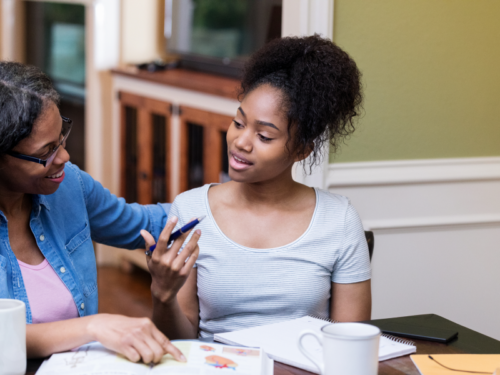
Table of Contents
Your Guide to Managing ADHD and Relationships
Written By: Charlie Health Editorial Team

Clinically Reviewed By: Dr. Don Gasparini
Updated: April 15, 2024
8 min.
ADHD can cause some extra difficulties in romantic relationships. Read on to learn how ADHD impacts relationships and how to cope.
Learn more about our Clinical Review Process
Table of Contents
While many people view attention-deficit/hyperactivity disorder (ADHD) as a disorder that mainly affects someone’s life at school or work, ADHD can also seriously impact interpersonal relationships. From inattentiveness to impulsivity, ADHD symptoms can strain romantic relationships, potentially making it more difficult for both partners to have a happy and healthy relationship.
ADHD is relatively common, affecting over 10 million adults and 3.3 million teens (ages 12-17), meaning there are a lot of people in a relationship and coping with ADHD or in a relationship with someone who has ADHD. Here’s what you need to know about ADHD in relationships and how to maintain a healthy partnership when ADHD is involved.
Join the Charlie Health Library
Get mental health updates, research, insights, and resources directly to your inbox.
You can unsubscribe anytime.
How does ADHD affect relationships?
Various ADHD symptoms can cause difficulties in romantic relationships, especially if a person’s ADHD is not managed –– or perhaps not even diagnosed. In a relationship where one partner or both partners have ADHD, it’s important to understand exactly how the disorder manifests in daily life and the context of intimacy so you’re aware of how it plays a role in your partnership.
Here are five examples of ADHD symptoms that can affect romantic relationships.
1. Trouble focusing on conversations
One hallmark ADHD symptom is having difficulty focusing or paying attention. During conversations with their partner, someone with ADHD may have every intention of staying present during the discussion. Still, it can be very difficult for them to focus and listen attentively when talking to their partner. For example, they may become easily distracted by other thoughts passing through their mind or outside stimuli such as nearby sights or sounds. This might especially become problematic during longer conversations where someone with ADHD may be unable to sustain their attention.
Due to this, it may be hard for a person with ADHD to focus on conversations, which can lead to them appearing distracted or uninterested during a talk or having trouble remembering what their partner said. Since communication is so important in relationships, it can be hurtful and frustrating for the other partner, who may feel ignored or invalidated. Additionally, it can lead to feelings of disconnection for the partner with ADHD who truly wants to hear their partner out but has trouble doing so.
2. Hyperactivity and impulsiveness during conversations
On top of trouble focusing, someone with ADHD may also exhibit hyperactivity or impulsivity when talking to their significant other. Some examples of this behavior include:
- Talking an excessive amount
- Interrupting their partner
- Struggling to wait their turn to speak
- Prematurely answering their partner’s questions before they’re done asking them
- Finishing their partner’s sentences
Again, this can feel frustrating for the partner without ADHD who is trying to express themselves fully and have a balanced conversation. It may feel more one-sided, which can become very frustrating and feel unfair.
3. Forgetfulness and disorganization
Someone with ADHD’s forgetfulness and disorganization can challenge their relationship. Since people with ADHD may be easily distracted and forgetful, they might forget about important things regarding the relationship –– such as important dates or commitments, which can be disappointing for the person without ADHD.
They may also forget to do a task they promised they would do. For example, in the case of a couple living together, the partner with ADHD may forget to do chores they assured their partner they would do –– leaving the other partner to remind them or do the work themselves. They may feel like they are carrying more weight or doing more work, resulting in tension or resentment in the relationship.

4. General impulsivity
Impulsive behavior is a challenge for people with ADHD. They may act quickly on impulse without carefully considering any consequences. Unfortunately, this can potentially lead to reckless behavior or poor decision-making –– which can take a toll on a romantic relationship. Impulsive actions or decisions can hurt the other partner’s feelings and, ultimately, the partnership.
In relationships, partners should be equal. Important decisions, especially, should be made as a team. So, if one partner is making impulsive decisions or being reckless, it can negatively affect each person and the relationship as a whole.
5. Trouble with emotional regulation
While it’s not one of the most well-known ADHD struggles, emotional dysregulation may affect those with ADHD. Put simply, this means that someone may have trouble regulating or controlling their emotions in a healthy way. As a result, they can become easily frustrated, irritable, or overwhelmed, leading to conflicts and misunderstandings with their partner.
Difficulty with emotional regulation can also cause anger in people with ADHD, leading to aggression or even angry outbursts. Instead of talking things out in a healthy, calm way, angry outbursts can put a strain on the relationship and potentially make the partner without ADHD feel uncomfortable or unsafe.
How to cope with ADHD in relationships
Despite these challenges, people with ADHD and their partners can absolutely have healthy, happy, and thriving relationships. However, it might take a little extra effort and patience on both partners’ ends. Here are seven tips for keeping your partnership healthy and coping with ADHD in relationships.
1. Seek ADHD treatment
First things first, if you believe you might have ADHD, don’t hesitate to reach out to a professional who specializes in ADHD and works with neurodivergent individuals. If you have already received an ADHD diagnosis in the past and you’re struggling with symptoms and your relationships are taking a hit, it’s time to revisit your ADHD treatment plan.
There are multiple treatment options for people with ADHD who want to improve their mental health, quality of life, and relationships. The main treatments are psychotherapy (specifically behavioral therapy and cognitive behavioral therapy) and medications (such as stimulants). Make sure you work with a neurodivergent-informed or neurodiversity-affirming therapist with extensive experience working with neurodivergent folks, such as people with ADHD.
2. Learn more about ADHD
For both partners, learning more about ADHD as a whole can help each person have a better grasp of the situation. Understanding the unique challenges of ADHD can help both partners develop empathy and compassion for one another.
Education can help someone with ADHD feel validated, find answers for why they think or act the way that they do, and realize they are not alone in their struggles. Similarly, learning more about ADHD symptoms and the science and psychology behind the disorder can help someone without ADHD recognize their partner’s behaviors that are directly linked to their disorder.
3. Have empathy
In romantic relationships that are struggling due to the burden of ADHD, both partners must exhibit empathy. Attempt to put yourself in your partner’s shoes, seeing situations from their point of view. This will give you a unique perspective and help you develop more empathy for your significant other.
For example, a person with ADHD can take a step back and ask themselves how they would feel if the roles were reversed and their partner was the one who was seemingly inattentive during conversations or forgetful about important dates. How would that make them feel? On the flip side, a person without ADHD can ask themselves how they would feel if they had ADHD and chronically struggled with inattentiveness and emotional regulation and how difficult that would be. How would that make them feel?
4. Communicate directly and openly
Regardless of ADHD or not, communication is key for a healthy relationship. In the case of a partnership where one or both partners have ADHD, communicating directly and openly is crucial so you can address problems head-on and work towards healthy solutions. Both partners should make an effort to listen actively, express thoughts and feelings clearly, and avoid blaming or criticizing one another.
Rather than beating around the bush or expecting your partner to be a mind reader, express yourself clearly and say what you really feel.
Here are some tips for direct, open, healthy communication:
- Use “I” statements instead of “you” statements. For example, you can say, “I feel sad and frustrated when you…” versus “You made me feel sad and frustrated” to avoid coming across as blaming.
- Don’t bottle up your emotions and hold everything in until you feel like you will explode. Express your hurt feelings far before you reach your breaking point.
- Ask clarifying questions to understand what your partner is asking of you or telling you to ensure you’re on the same page.
- Validate your partner’s feelings and try to understand where they’re coming from.
- Have important conversations face-to-face rather than over text. It’s easy to take something the wrong way when you don’t have verbal cues or body language to give you more context.
- Be willing to compromise with your partner and meet them in the middle.
- Avoid yelling or using any disrespectful language. If one or both of you get too heated, step away from the conversation and revisit it later when you both feel more level-headed.

5. Ask questions
Don’t be afraid to ask questions along the lines of open communication. This goes for both the partner with ADHD and the partner without. For example, if you have ADHD, you can ask your partner if there are any specific things they want to discuss or if there’s anything you can do to help them feel more comfortable in the relationship. If you’re a partner without ADHD, you can ask your partner questions about the disorder and if there’s anything that they’re really struggling with and need help with.
6. Remember the good aspects of your relationship
When things are tough, it’s all too easy to focus on the hardships and downsides of the relationship, falling down a rabbit hole of negative thoughts. However, it’s important to step back and remember all the reasons why you love your partner and why you’re in the relationship –– all the reasons why this partnership is worth fighting for. Think about how you both can use your unique strengths to support each other throughout the hard times and make the relationship work.
7. Seek couples therapy
If you’re in an adult relationship and the above tips still haven’t helped your relationship get on the right track, it may be worth seeking couples therapy if you both want the partnership to work.
A couples therapist provides an unbiased and objective point of view to help couples develop healthier relationships, such as by working on healthy communication skills. Similar to seeking individual therapy, it can help to find a couples therapist with extensive experience working with couples where one or both partners struggle with adult ADHD.
How Charlie Health can help
If you or your loved one has attention-deficit/hyperactivity disorder (ADHD) that’s taking a toll on mental health and relationships, Charlie Health may be able to help. Charlie Health’s virtual Intensive Outpatient Program (IOP) provides more than once-weekly mental health treatment for young people and families dealing with serious mental health conditions, including ADHD. Our expert clinicians incorporate evidence-based therapies, including neurodivergent-affirming therapy, into individual counseling, family therapy, and group sessions. With this kind of holistic treatment, managing ADHD and relationships is possible. Fill out the form below or give us a call to start healing today.





